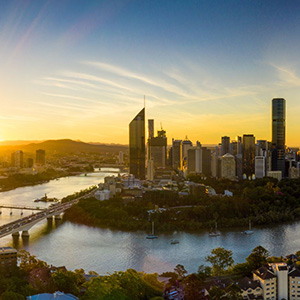Working in Australia is a rewarding experience. The country’s outstanding job opportunities and higher paychecks are highly sought after by employees across the globe. Additionally, the Gold Coast sunshine and fantastic leisure amenities also contribute to a positive work-life balance. Whether you’re relocating with your family or by yourself, we’ve covered all the information you’ll need when it comes to getting a job in Australia.
Finding a Job in Australia
Securing employment is no mean feat. Australia’s attractive work opportunities mean that the labour market here is incredibly competitive. But that shouldn’t deter you. As of December 2023, Australia maintains a staggeringly low unemployment rate of 3.8%. This means you have a good chance of getting a job in Australia.
1. Have an Australian-formatted Resume
Having a resume that is up-to-date and showcases your skills is key to securing the job you want. Most importantly, to get a job in Australia, you need to make sure your resume is formatted correctly. Australian employers prefer concise resumes spanning no more than two to three pages. An executive summary at the start, followed by a reverse chronological format highlighting your job experience and key skills is recommended.
2. Optimise your LinkedIn Profile
Your LinkedIn Profile is your first point of contact for recruiters and hiring managers. Optimising your profile so that it showcases your experience as well as what you are looking for is key to nailing first impressions. Having your referrals ready to share through LinkedIn will help you stay organised in your Australia job search. Hiring managers in Australia are interested in learning your specific skill set or project management in your referral.
3. Develop a Job Strategy
To make sure you can land your dream job in Australia, you must have a job strategy. This will help you find a job that’s in your wheelhouse instead of jeopardising your chances by applying to multiple positions with varying skill sets. It’s always better to have your recruiter contact you about different positions at the company you applied to instead of going for several positions at once.
4. Find a Job that Matches Your Skills
Australia’s Skill Select Migration Program offers jobs with specific skill sets to attract the right candidates. When you apply to this program, you will be assessed on a points-based system. To qualify for the required visa, you must secure enough points. As such, it is imperative to keep your skills up-to-date to have the best chance of securing a job in the right industry.
5. Update your Start Date
Most hiring managers in Australia will look at your location before noticing what visa you have. Even if you have been granted permanent residency, your international move might be delayed if you’re having trouble finding a job. That is why you must note down your start date either on your resume or cover letter or both, so that employers know when you are available.
6. Send Your Application
In addition to your CV, you also need to tailor your job application to target specific employers. If you’re from the UK, it will be easier for Australian employers to recognise your qualifications due to the resemblance in the countries’ higher education. Likewise, if you’re a UK national who qualifies for the interview round for a job in Australia, you will find it similar to the telephone or face-to-face interview conducted in the UK.
Visas for Jobs in Australia
You must apply for and secure a valid Australian work visa to get a job in Australia. Your visa will ensure that you are protected by Australian laws and can enjoy your rights. The nature of your work and skills will determine the type of visa you get.

Skilled Visas
The Australian Skilled Visa is offered to workers who secure enough points in the Skills Select Program. You can look up the government website to check what skill gaps in the Australian labour market you can meet.
Employer-Sponsored Workers
In Australia, there are certain employers who can sponsor you to work for them. Getting a job with one of them will also solve your Australian visa needs.
Harvest Trail
If you would like to work on Australian farms, the Harvest Trail visa will be appropriate for you. This will allow you to travel and experience the Sunburnt Country.
Working Holiday Visa
If you are between the ages of 18 and 30, and would like to work and travel in Australia, you can apply for the Working Holiday Visa. This visa is available for a duration of 12 months. However, if you have worked three months on certain jobs specified by the government, you may be eligible for a second Working Holiday Visa.
Top Employers to Get a Job in Australia
The Australian economy is dominated by three primary industries; services, agriculture, and tourism. The country’s natural mines such as oil and gold, also make it the ideal place for tourism.
Currently, the following companies are leading Australia’s Top 100 Graduate Employers list.
- Amazon
- Capgemini Australia and New Zealand
- Unilever
- NAB
- Adobe
- FDM Group
- Optiver
- Nous Group
- Westpac Group
- Deloitte Australia
Graduate job opportunities are higher in metropolitan cities such as Melbourne, Adelaide, Perth, Canberra, and Brisbane. However, that doesn’t mean you should dismiss opportunities in rural areas. With the right skills and qualifications, you find promising job prospects throughout Australia.

Sectors Facing Shortages
There are certain industries in Australia that are facing a shortage of workers. Your job search might speed up if you consider any of these occupations.
Nursing and Medicine
The healthcare industry in Australia has a high demand for workers at the moment. With substantial numbers of nurses retiring, the demand for nurses, personal care workers, aged and disabled carers in Australia is particularly high.
IT and Software
Australia’s tech industry is growing at an accelerated rate. If you’re interested in software development and have experience in UX/UI, stack development, back-end designs, etc. you may be able to get a job in Australia’s IT sector.
Trades and Construction
Construction and trade workers such as electricians, plumbers, welders, joiners, and carpenters are in high demand in Australia. The country needs both skilled workers and unskilled labourers.
Teaching
Although the need for primary school teachers is reduced, Australia has a high demand for secondary school teachers. Skilled workers may need to travel to regions with high demand to secure employment.

Australia offers a high quality of life with efficient healthcare and social systems. Although the cost of living in Australia is relatively high, the country’s excellent job prospects and work-life balance far outweigh it. UK nationals, in particular, find it easier to adapt to life in Australia because of the similarity in language and culture.
If you’re considering moving to Australia, our international moving guide has all the information you need for your relocation. If you have any queries, get in touch with one of our global relocation experts today.



